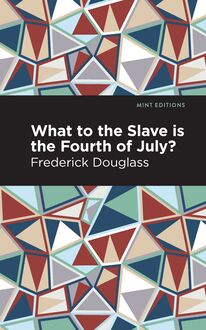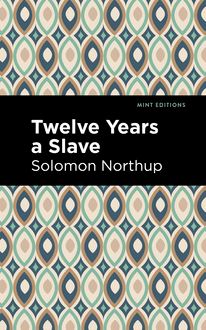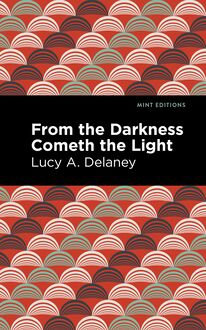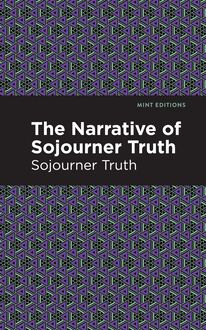-
 Univers
Univers
-
 Ebooks
Ebooks
-
 Livres audio
Livres audio
-
 Presse
Presse
-
 Podcasts
Podcasts
-
 BD
BD
-
 Documents
Documents
-
- Cours
- Révisions
- Ressources pédagogiques
- Sciences de l’éducation
- Manuels scolaires
- Langues
- Travaux de classe
- Annales de BEP
- Etudes supérieures
- Maternelle et primaire
- Fiches de lecture
- Orientation scolaire
- Méthodologie
- Corrigés de devoir
- Annales d’examens et concours
- Annales du bac
- Annales du brevet
- Rapports de stage
La lecture à portée de main
Vous pourrez modifier la taille du texte de cet ouvrage
Découvre YouScribe en t'inscrivant gratuitement
Je m'inscrisDécouvre YouScribe en t'inscrivant gratuitement
Je m'inscrisEn savoir plus
Vous pourrez modifier la taille du texte de cet ouvrage
En savoir plus

Description
Contending Forces (1900) is a novel by African American author Pauline Elizabeth Hopkins. Originally published by the Colored Co-operative Publishing Company in Boston, Contending Forces is a groundbreaking novel that addresses themes of race and slavery through the lens of romance, faith, and betrayal. It was Hopkins’ first major publication as a leading African American author of the early twentieth century.
Charles Montfort is a peculiar planter. Moving with his wife, Grace, and his sons from Bermuda to North Carolina, he announces his desire to slowly free his slaves. This angers the townspeople, who refuse to recognize the abilities of black people beyond base servitude. Anson Pollack, a jealous man, leverages his friendship with Montfort in order to gain his confidence while hatching a plan to kill him and steal his property. When a rumor regarding Grace’s racial heritage begins to spread, Montfort fears that an attempt will be made on his life. Soon enough, Anson and a posse of local men descend on the Montfort plantation, killing Charles and kidnapping his sons. While Jesse manages to escape to Boston, Charles Jr. is sold into slavery, changing their lives irrevocably. Contending Forces is a thrilling work of fiction from a true pioneer of American literature, a woman whose talent and principles afforded her the vision necessary for illuminating the injustices of life in a nation founded on slavery and genocide.
With a beautifully designed cover and professionally typeset manuscript, this edition of Pauline Elizabeth Hopkins’ Contending Forces is a classic work of African American literature reimagined for modern readers.
Sujets
Informations
| Publié par | Mint Editions |
| Date de parution | 24 mars 2021 |
| Nombre de lectures | 0 |
| EAN13 | 9781513293516 |
| Langue | English |
| Poids de l'ouvrage | 2 Mo |
Informations légales : prix de location à la page 0,0500€. Cette information est donnée uniquement à titre indicatif conformément à la législation en vigueur.
Extrait
Contending Forces
Pauline E. Hopkins
Contending Forces was first published in 1900.
This edition published by Mint Editions 2021.
ISBN 9781513290669 | E-ISBN 9781513293516
Published by Mint Editions®
minteditionbooks .com
Publishing Director: Jennifer Newens
Design & Production: Rachel Lopez Metzger
Project Manager: Micaela Clark
Typesetting: Westchester Publishing Services
C ONTENTS P REFACE I. A R ETROSPECT OF THE P AST II. T HE D AYS “B EFORE THE W AR ” III. “C OMING E VENTS C AST T HEIR S HADOWS B EFORE ” IV. T HE T RAGEDY V. M A S MITH ’ S L ODGING -H OUSE VI. M A S MITH ’ S L ODGING -H OUSE — C ONCLUDED VII. F RIENDSHIP VIII. T HE S EWING -C IRCLE IX. “L OVE T OOK U P THE H ARP OF L IFE ” X. T HE F AIR XI. T HE F AIR — C ONCLUDED XII. A C OLORED P OLITICIAN XIII. T HE A MERICAN C OLORED L EAGUE XIV. L UKE S AWYER S PEAKS TO THE L EAGUE XV. W ILL S MITH ’ S D EFENSE OF H IS R ACE XVI. J OHN L ANGLEY C ONSULTS M ADAM F RANCES XVII. T HE C ANTERBURY C LUB D INNER XVIII. W HAT E ASTER S UNDAY B ROUGHT XIX. T HE B ITTER A RROW XX. M OTHER -L OVE XXI. A FTER M ANY D AYS XXII. “S O H E B RINGETH T HEM I NTO T HEIR D ESIRED H AVEN ”
P REFACE
In giving this little romance expression in print, I am not actuated by a desire for notoriety or for profit, but to do all that I can in an humble way to raise the stigma of degradation from my race.
While I make no apology for my somewhat abrupt and daring venture within the wide field of romantic literature, I ask the kind indulgence of the generous public for the many crudities which I know appear in the work, and their approval of whatever may impress them as being of value to the Negro race and to the world at large.
The colored race has historians, lecturers, ministers, poets, judges and lawyers,—men of brilliant intellects who have arrested the favor able attention of this busy, energetic nation. But, after all, it is the simple, homely tale, unassumingly told, which cements the bond of brotherhood among all classes and all complexions.
Fiction is of great value to any people as a preserver of manners and customs—religious, political and social. It is a record of growth and development from generation to generation. No one will do this for us; we must overselves develop the men and women who will faithfully portray the inmost thoughts and feelings of the Negro with all the fire and romance which lie dormant in our history , and, as yet, unrecognized by writers of the Anglo-Saxon race.
The incidents portrayed in the early chapters of the book actually occurred. Ample proof of this may be found in the archives of the courthouse at Newberne, N. C., and at the national seat of government, Washington, D. C.
In these days of mob violence, when lynch law is raising its head like a venomous monster, more particularly in the southern portion of the great American republic, the retrospective mind will dwell upon the history of the past, seeking there a solution of these monstrous outbreaks under a government founded upon the greatest and brightest of principles for the elevation of mankind. While we ponder the philosophy of cause and effect, the world is horrified by a fresh outbreak, and the shocked mind wonders that in this—the brightest epoch of the Christian era— such things are .
Mob-law is nothing new. Southern sentiment has not been changed; the old ideas close in analogy to the spirit of the buccaneers, who formed in many instances the first settlers of the Southland, still prevail, and break forth clothed in new forms to force the whole re public to an acceptance of its principles.
“Rule or ruin” is the motto which is com mitting the most beautiful portion of our glorious country to a cruel revival of piratical methods; and, finally, to the introduction of Anarchy. Is this not so? Let us compare the happenings of one hundred—two hundred years ago, with those of today. The difference between then and now, if any there be, is so slight as to be scarcely worth mentioning. The atrocity of the acts committed one hundred years ago are duplicated today, when slavery is supposed no longer to exist.
I have tried to tell an impartial story, leaving it to the reader to draw conclusions. I have tried to portray our hard struggles here in the North to obtain a respectable living and a partial education. I have presented both sides of the dark picture—lynching and concubinage—truthfully and without vituperation, pleading for that justice of heart and mind for my people which the Anglo -Saxon in America never withholds from suffering humanity.
In Chapter XIII I have used for the address of the Hon. Herbert Clapp the statements and accusations made against the Negro by ex- Governor Northern of Georgia, in his memorable address before the Congregational Club at Tremont Temple, Boston, Mass., May 22, 1899. In Chapter XV I have made Will Smith’s argument in answer to the Hon. Herbert Clapp a combination of the best points made by well-known public speakers in the United States—white and black—in defense of the Negro. I feel my own deficiencies too strongly to attempt original composition on this subject at this crisis in the history of the Negro in the United States. I have introduced enough of the exquisitely droll humor peculiar to the Negro (a work like this would not be complete without it) to give a bright touch to an otherwise gruesome subject.
T HE A UTHOR
I
A R ETROSPECT OF THE P AST
We wait beneath the furnace- blast
The pangs of transformation;
Not painlessly doth God recast
And mould anew the nation.
Hot burns the fire
Where wrongs expire;
Nor spares the hand
That from the land Uproots the ancient evil.
—J. G. Whittier
In the early part of the year 1800 the agitation of the inhabitants of Great Britain over the increasing horrors of the slave trade carried on in the West Indian possessions of the Empire was about reaching a climax. Every day the terrible things done to slaves were becoming public talk, until the best English humanitarians, searching for light upon the subject, became sick at heart over the discoveries that they made and were led to declare the principle: “The air of England is too pure for any slave to breathe.”
To go back a little way in the romantic history of the emancipation of the slaves in the islands will not take much time, and will, I hope, be as instructive as interesting. Tales of the abuses of the slaves, with all the sickening details, had reached the Quaker community as early as 1783, and that tender-hearted people looked about themselves to see what steps they could take to ameliorate the condition of the Negroes in the West Indies, and to discourage the continuation of the trade along the African coast.
Thomas Clarkson, a student at Cambridge, was drawn into writing a prize essay on the subject, and became so interested that he allied himself with the Quakers and investigated the subject for himself, thereby confirming his own belief, “that Providence had never made that to be wise that was immoral; and that the slave trade was as impolitic as it was unjust.”
After strenuous efforts by Mr. Pitt and Mr. Fox, Parliament became interested and instituted an inquiry into the abuses of the slave trade. Finally, Mr. Wilberforce was drawn into the controversy, and for sixteen years waged an incessant warfare against the planters, meeting with defeat in his plans for ten consecutive years; but finally, in 1807, he was successful, and the slave trade was abolished.
These assailants of the slave trade had promised not to try to abolish slavery; but in a short time they learned that the trade was still carried on in ships sailing under the protection of false flags. Tales of the cruelties practiced upon the helpless chattels were continually reaching the ears of the British public, some of them such as to sicken the most cold-hearted and indifferent. For instance: causing a child to whip his mother until the blood ran; if a slave looked his master in the face, his limbs were broken; women in the first stages of their accouchement, upon refusing to work, were placed in the treadmill, where terrible things happened, too dreadful to relate.
Through the efforts of Granville Sharpe, the chairman of the London committee, Lord Stanley, minister of the colonies, introduced into the House of Commons his bill for emancipation.
Lord Stanley’s bill proposed gradual emancipation, and was the best thing those men of wisdom could devise. Earnestly devoted to their task, they sought to wipe from the fair escutcheon of the Empire the awful blot which was upon it. By the adoption of the bill Great Britain not only liberated a people from the cruelties of their masters, but at the same time took an important step forward in the onward march of progress, which the most enlightened nations are unconsciously forced to make by the great law of advancement; “for the civility of no race can be perfect whilst another race is degraded.”
In this bill of gradual emancipation certain conditions were proposed. All slaves were entitled to be known as apprenticed laborers, and to acquire thereby all the rights and privileges of freemen. “These conditions were that praedial should owe three-fourths of the profits of their labors to their masters for six years, and the non-praedial for four years. The other fourth of the apprentice’s time was to be his own, which he might sell to his master or to other persons; and at the end of the term of years fixed, he should be free.”
In the winter of 1790, when these important changes in the life of the Negro in the West Indies were pending, many planters were following the course of events with great anxiety. Many feared that in the end their slaves would be taken from them without recompense, and thereby render them and their families destitute. Among these planters was the family of Charles Montfort, of the island of Bermuda.
Bermuda’s fifteen square miles of arca lays
-
 Univers
Univers
-
 Ebooks
Ebooks
-
 Livres audio
Livres audio
-
 Presse
Presse
-
 Podcasts
Podcasts
-
 BD
BD
-
 Documents
Documents
-
Jeunesse
-
Littérature
-
Ressources professionnelles
-
Santé et bien-être
-
Savoirs
-
Education
-
Loisirs et hobbies
-
Art, musique et cinéma
-
Actualité et débat de société
-
Jeunesse
-
Littérature
-
Ressources professionnelles
-
Santé et bien-être
-
Savoirs
-
Education
-
Loisirs et hobbies
-
Art, musique et cinéma
-
Actualité et débat de société
-
Actualités
-
Lifestyle
-
Presse jeunesse
-
Presse professionnelle
-
Pratique
-
Presse sportive
-
Presse internationale
-
Culture & Médias
-
Action et Aventures
-
Science-fiction et Fantasy
-
Société
-
Jeunesse
-
Littérature
-
Ressources professionnelles
-
Santé et bien-être
-
Savoirs
-
Education
-
Loisirs et hobbies
-
Art, musique et cinéma
-
Actualité et débat de société
- Cours
- Révisions
- Ressources pédagogiques
- Sciences de l’éducation
- Manuels scolaires
- Langues
- Travaux de classe
- Annales de BEP
- Etudes supérieures
- Maternelle et primaire
- Fiches de lecture
- Orientation scolaire
- Méthodologie
- Corrigés de devoir
- Annales d’examens et concours
- Annales du bac
- Annales du brevet
- Rapports de stage




















